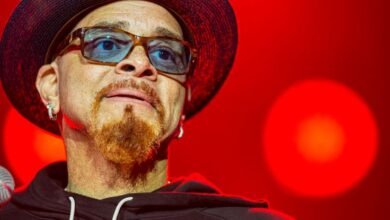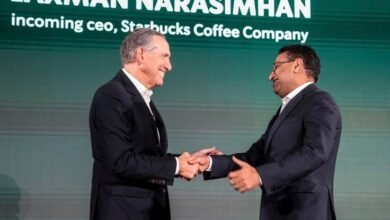Net Worth of Nestlé Owner 2024: How Much Is the Nestlé Family Worth?
Net Worth of Nestlé Owner 2024: How Much Is the Nestlé Family Worth?

If you’re curious about the financial magnitude behind one of the world’s largest food companies, you’re not alone. Nestlé is a household name synonymous with iconic products like KitKat, Nescafé, and Maggi. But how does the company’s success translate to the personal wealth of its owner? This article dives into the fascinating details of Nestlé’s history, the concept of net worth, and a breakdown of the wealth held by those at the helm.
A Snapshot of Nestlé and Its Leadership
Nestlé, headquartered in Vevey, Switzerland, started as a company focused on infant nutrition more than 150 years ago. Over the decades, it has grown into the world’s largest food and beverage conglomerate, with a portfolio spanning coffee, pet food, dairy products, and bottled water. With operations in nearly every corner of the globe, Nestlé has consistently delivered innovation and profitability to the market.
But who owns Nestlé? Unlike many companies with a single charismatic owner, Nestlé operates as a publicly traded entity. That means the company is owned by its shareholders, and there isn’t one sole “owner.” However, its leadership and board of directors, particularly the CEO and key stakeholders, play a pivotal role in shaping its success. Currently, Mark Schneider serves as Nestlé’s CEO and is often seen as the driving force behind the company’s strategic direction. While he doesn’t “own” Nestlé, his influence makes him one of the central figures associated with the company’s growth.
Understanding Net Worth and How It’s Calculated
Before we dig into the specifics of the wealth tied to Nestlé’s stakeholders and leadership, it’s important to understand what “net worth” means. Net worth represents the total value of an individual’s or entity’s assets after subtracting liabilities. For example:
- Assets include cash, investments, real estate, and ownership stakes in companies.
- Liabilities include debt, mortgages, and any other financial obligations.
Net worth is a critical measure of financial health and influence, especially when assessing high-profile individuals or businesses. For corporate executives like Mark Schneider or Nestlé’s major shareholders, it gives us insight into how their wealth ties back to the company’s success.
The Net Worth of Nestlé’s Owner
Major Stakeholders and Wealth Contributions
Nestlé operates as a publicly traded entity, so its “ownership” is shared among its investors on the stock market. The company’s largest shareholders include global investment firms like BlackRock and Norges Bank Investment Management, as well as private holders. Determining the net worth of the “so-called owner” often means examining the company’s executives and the wealthiest shareholders.
Mark Schneider, the CEO, earns a substantial compensation package for his leadership role, which includes a base salary, performance bonuses, and stock options. His personal net worth is estimated to be in the tens of millions of dollars, primarily influenced by his earnings from Nestlé. However, in the context of Nestlé’s overall market capitalization—over $300 billion USD—his personal wealth is a small fraction.
The Biggest Shareholders
Investors with major stakes in Nestlé stocks hold significant wealth tied to the company’s value. For instance:
- BlackRock, one of the largest investment management firms globally, holds approximately 5% of Nestlé’s shares. This stake is valued in the billions, directly tied to Nestlé’s stock price.
- Nestlé families and private trusts also maintain a sizeable holding, showcasing old-money influence that has sustained since the company’s inception.
Ultimately, rather than a single owner, Nestlé represents the work and investment of numerous individuals and institutions that define its success.
Factors Contributing to Wealth
The primary factor determining wealth tied to Nestlé is the company’s performance. A rise in revenue, new market launches, and innovative strategies all lead to stock price appreciation. For example:
- Nestlé’s recent focus on sustainability and plant-based foods has added to its appeal among younger consumers, boosting stockholder values.
- Strategic acquisitions, like the purchase of Blue Bottle Coffee, also position the company for continued growth, which directly impacts its investors.
How Does It Compare to Other Business Leaders?
When looking at the net worth tied to Nestlé’s leadership or shareholders, it’s interesting to compare it to figures known for owning or leading other global businesses:
- Jeff Bezos (Amazon): $150+ billion USD
- Elon Musk (Tesla/SpaceX): $200 billion+ USD
- Bernard Arnault & Family (LVMH): $190 billion+ USD
- Mark Schneider (Nestlé): Estimated net worth in millions, attributed to his Nestlé compensation.
While Nestlé’s leadership doesn’t reach the stratospheric levels of tech or luxury brand magnates, the collective wealth held by its stakeholders and institutional investors is unparalleled.
Future Projections for Nestlé’s Wealth Influence
With its dominance in the food and beverage sector, the future of Nestlé’s market value and shareholder wealth looks promising. Key factors influencing this projection include:
- Sustainable Growth: Nestlé’s investments in eco-friendly packaging and renewable energy signal long-term viability in an environmentally conscious world.
- Plant-Based Innovation: The push toward vegan and plant-based offerings, like Nestlé’s plant-based proteins, shows an alignment with consumer trends.
- Global Expansion: Nestlé continues to enter emerging markets, growing its foothold across regions like Africa and Southeast Asia.
- Digital Transformation: Investments in e-commerce platforms make Nestlé products more accessible globally, boosting sales.
If these trends continue, Nestlé’s market capitalization is likely to climb, benefiting its investors and key executives.
Reflecting on the Role of Net Worth
When assessing the net worth tied to Nestlé, it’s crucial to remember that individuals like Mark Schneider represent just one part of the story. The real “owners” are the shareholders, from major organizations to small-scale retail investors, all of whom contribute to and benefit from Nestlé’s success. Understanding the net worth of influential figures like Nestlé’s leadership not only reveals fascinating financial truths but also showcases the ripple effects of global businesses on personal and economic wealth.
Your Turn to Explore
Net worth reveals much about how influence and money intersect in the corporate world. What are your thoughts on the wealth tied to Nestlé? Share your opinions in the comments or explore more insights into corporate finance and business leaders on our blog.



